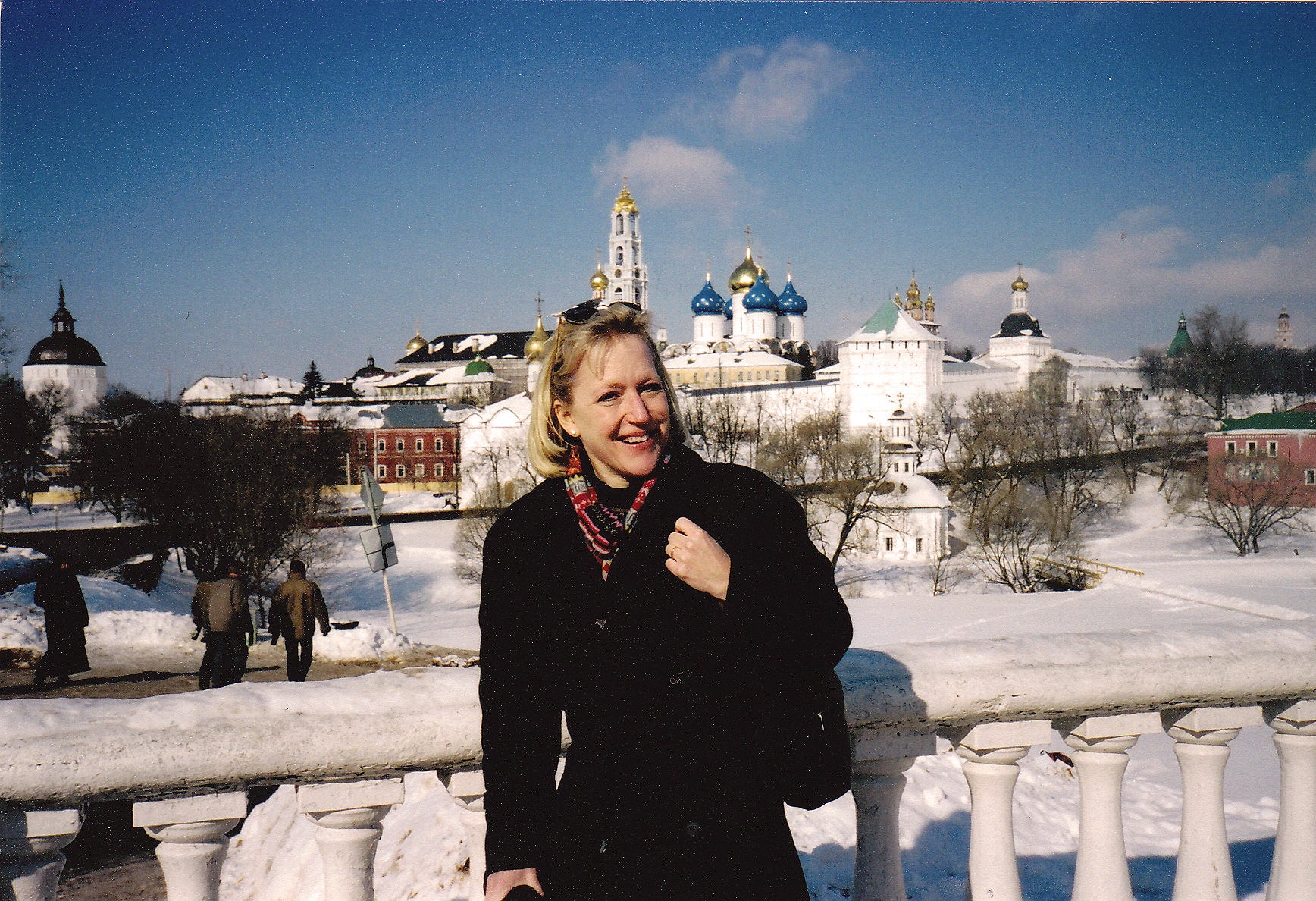Caralyn Bushey was an English Language Fellow in Moscow, Russia in the 2005-2006 academic year. For Caralyn, her fellowship was “the opportunity of a lifetime. Every professional success I have achieved since coming back from my fellowship is directly attributable to the time I spent as a Fellow.”
During her fellowship, Caralyn taught classes in the journalism faculty at Moscow State University and traveled around the region conducting teacher training workshops. “The workshops I taught tended to focus in one way or another on incorporating the communicative approach to language teaching, as there was still a great deal of entrenched skepticism about this among certain elements within the ELT community.”

Caralyn now works at the Maryland English Institute (MEI) at the University of Maryland, where she is currently teaching two sections of a listening/speaking class. Next semester, she will teach a pre-intermediate reading/writing/grammar class. “That being said, our assignments sometimes change at the last minute in response to the needs of the program. Since one needs to be flexible and resourceful to be successful as a Fellow, our administration often taps Fellow alums to take on these last minute changes, knowing that we can do so.”
 The faculty of MEI illustrates the professional credence the English Language Fellow Program provides its alumni: three of Caralyn’s colleagues have also served as Fellows. “Serving as an English Language Fellow puts one at a competitive advantage in the job market,” Caralyn said. “I gained a great deal of confidence in my ability to adapt and be flexible in a very challenging environment.”
The faculty of MEI illustrates the professional credence the English Language Fellow Program provides its alumni: three of Caralyn’s colleagues have also served as Fellows. “Serving as an English Language Fellow puts one at a competitive advantage in the job market,” Caralyn said. “I gained a great deal of confidence in my ability to adapt and be flexible in a very challenging environment.”
Her adaptability and flexibility, two important qualities for TESOL educators, came in handy during her time in Russia. Immersing oneself in a new culture abroad also means experiencing a new climate. For Caralyn, that meant living in Russia during its coldest winter in fifty years. Luckily for her, “the overwhelming warmth of the Russian people certainly compensated for the cold weather.” Her advice to any future Fellows in Russia? “Buy really warm boots!”
Language barriers are also a common challenge for people living abroad. “Being thrown into a foreign environment where you don’t speak the language is humbling, but humbling in a good way for a language teacher as it reminds one of the struggles our students are encountering.” From cold winters to language obstacles, Caralyn faced these challenges in Russia with positivity and gained a valuable global perspective as an American abroad.

How did Caralyn’s professional experience during her fellowship serve as a launchpad for her career once she returned to the United States? “I was inspired by my Russian ELT colleagues who were movers and shakers in their local TESOL affiliates and I vowed upon my return to the U.S. to emulate them, which I did by serving as the WATESOL president, among other leadership roles. That was a stepping stone to serving in a leadership capacity in TESOL, where I served as the Intensive English Program Interest Section Chair. Our local community college launched a TESOL certificate program and I was invited to design, develop, and deliver a course in ELT Methodology for that program, which I teach to this day.”

